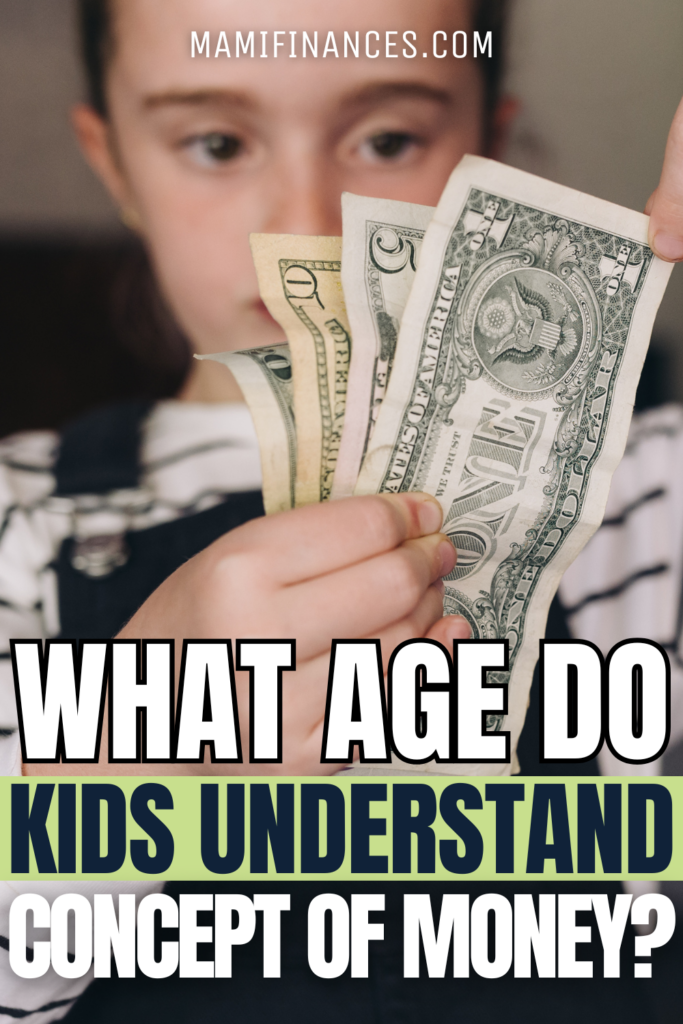At What Age Do Kids Understand the Concept of Money?
As parents, we want our children to grow up to be responsible and financially savvy adults. But at what age do kids actually understand the concept of money? It's a question that many parents struggle with, but luckily, there are techniques and resources available to help you teach your child about money in an engaging and relatable way.

So let's dive in and explore this important topic together.
When Do Kids Understand the Concept of Money?
The simple answer is that it varies from child to child. Some kids may start showing interest in money as early as 5 or 6 years old, while others may not fully grasp its value until they are closer to 10 or 11 years old. It's important to remember that every child is different and learns at their own pace.
What age do kids understand concept of money?
The understanding of the concept of money begins to form in children at quite an early age. Around the age of 2 or 3, kids start to recognize money as a form of exchange, especially when they see you using cash to make purchases. As they grow a little older, between the ages of 6 and 8, they begin to grasp how money works more comprehensively. This is a great time to introduce an allowance and encourage saving (Source: Parents).
By the age of 7, many children can differentiate between the values of different coins and bills (Source: Fatherly). It's also worth noting that by this age, kids have already started forming their money habits, according to research by the University of Cambridge (Source: Mydoh). So it's important to instill good financial habits early on.
By the ages of 9 to 11, children are capable of understanding simple budgeting concepts and the idea of delayed gratification, which is crucial for saving money. So, while the understanding of money evolves with age, the foundations are laid quite early in life.
What age do kids learn to count money?
Well, it varies from child to child, but generally speaking, most children start to understand the basic concept of counting by the age of 28 months or 36 months old. Around this age, they might even start learning to count, although they probably won't understand the value of different coins and bills just yet.
By the time they're in kindergarten, which kids typically enter at different ages, they should be able to count to 100 (Source: Blue and Hazel). This is an important milestone because it lays the groundwork for understanding higher denominations of money.
Even more fascinating is the fact that kids as young as 3 can grasp basic money concepts, and by age 7, many of their money habits are already set.
So, whether it's through fun counting games, role-playing with play money, or real-life shopping experiences, let's make sure we're equipping our kids with the financial knowledge they'll need for the future. After all, every penny counts, right?

Should you talk about money with your kids?
Discussing money with your children is not just beneficial—it's crucial. Children are naturally curious, and they'll start to wonder about money as soon as they see you swiping a card or exchanging cash for goods. By having open and honest conversations about money from an early age, you can lay the foundation for financial literacy that will serve them well into adulthood.
It's important to introduce the concept of money in a way that aligns with their cognitive development. For example, young children can start by identifying coins and notes, while older children can learn about saving, budgeting, and the value of money. As they grow, discussions can evolve to cover more complex subjects like credit, loans, and investments.
Avoiding the topic of money can lead to misconceptions and a lack of understanding about the value and management of money. Alternatively, teaching kids about money—how to earn it, save it, spend it wisely, and donate it—can instill in them valuable skills and habits such as patience, planning, and generosity.
Remember, it's not just about making them money-smart. It's about shaping their character, teaching them responsibility, and preparing them for the real world. So yes, you should definitely talk about money with your kids, no matter what age they are.
Techniques for Teaching Kids About Money
So, what can you do as a parent to help your child understand the concept of money? Here are some techniques that may be helpful:
- Start early: Even if your child doesn't fully understand money yet, it's never too early to start introducing them to the concept. Use everyday situations, such as grocery shopping or budgeting for a family outing, to talk about money in a relatable way.
- Use visual aids: Many kids learn best through visual aids, so consider using play money or creating a savings chart to help them understand the value of money and how it can grow over time.
- Make it fun: Learning about money doesn't have to be boring! Incorporate games or activities into your lessons, such as a “store” where your child can practice making purchases with play money.
Resources for Teaching Kids About Money
In addition to these techniques, there are also plenty of resources available to help parents teach their kids about money. Here are a few examples:
- Books: There are many children's books out there that focus on money and financial responsibility. Look for ones that use relatable characters and situations to make learning about money more fun.
- Apps: There are also several apps available that can help kids learn about budgeting, saving, and investing in a digital format. This may be especially helpful for older kids who are more tech-savvy.
- Online resources: The internet is full of helpful articles, videos, and games that can make learning about money interactive and engaging. Look for age-appropriate content that aligns with your child's current level of understanding.
Remember, the key is to make learning about money relatable and fun for your child. By starting early, using visual aids, and utilizing available resources, you can help your child develop a strong understanding and healthy habits when it comes to money management.
So don't wait; start teaching your kids about money today! The world is at their fingertips, so let's ensure they have the tools to navigate it successfully. After all, financial literacy is an essential life skill that will benefit them for years to come.







